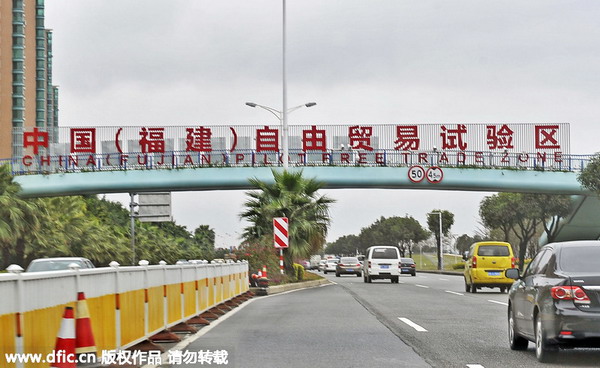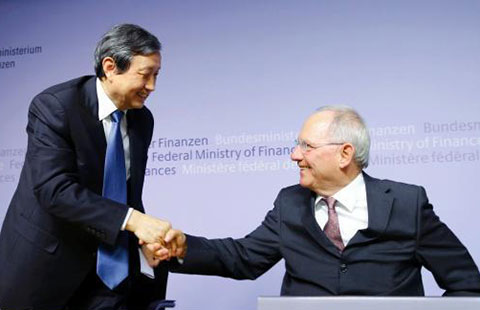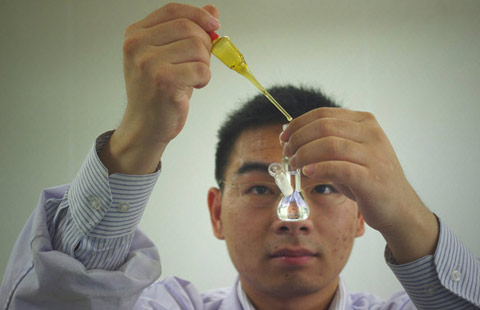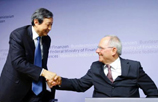Free trade zones set to become vital testing grounds for broad reforms
By Zhong Nan (China Daily) Updated: 2015-03-27 07:17
 |
|
Fujian Pilot Free Trade Zone is looking to innovation, March 6, 2015. [Photo/IC] |
"Even though these new FTZs may unavoidably develop a uniformity of financial services in the initial stages, fierce competition will eventually force them to optimize their policies, improve their infrastructure, nurture talent and lure foreign capital," said Lin.
For foreign businesses, Lin said many undeveloped social service industries such as education, social security, health and elderly care can become new market growth points, because demand for these services has surged in China over the past decade.
China cut the number of industries in which it restricts foreign investment earlier this month, as the new Catalog for the Guidance of Industries for Foreign Investment gained approval from the State Council (cabinet) and will take effect on April 10. The number of restricted sectors was cut almost in half, from 79 to 38.
Favored sectors within the new guidelines are modern agriculture, high technology, advanced manufacturing, energy efficiency and environmental protection, alternative energy and modern services.
In the Shanghai FTZ, the number of sectors where foreign investment is restricted was cut to 139 in 2014 from 190 a year earlier. This year's list is expected to be shorter again.
These modified policies from the cabinet and the Shanghai FTZ can be adopted within the three new FTZs.
China attracted more foreign direct investment than any other country in 2014-$119.6 billion, up 1.7 percent on a year-on-year basis.
"All China's four FTZs are still in the initial period and foreign companies will gain more tangible benefits once the necessary policies and measures are put in place," said Chen Bo, a researcher in the free trade zone research institution of the Shanghai University of Finance and Economics.
Chen said although the "negative list" system applied in the Shanghai FTZ will be adopted by the three new FTZs, perhaps with some modifications, the success of each one will be decided by its reform concepts and how they are executed.
Li Jian, a researcher in the international trade and economic cooperation institute of the Ministry of Commerce, said the three FTZs will inevitably be compared with the Shanghai FTZ, but they will also be places to test the feasibility of ideas and provide new experience for further reform and opening-up throughout the country.
- Israel requests to join Asian Infrastructure Investment Bank
- Chinese stocks rebound on April 1
- China, the West in Africa: more room for cooperation than competition
- Nanjing cuts taxi franchise fees
- Air China increases flights to Milan, Paris
- JD.com raises delivery charges
- Veteran corporate strategist upbeat about China economy
- L'Oreal China sales revenue up 7.7% in 2014

















